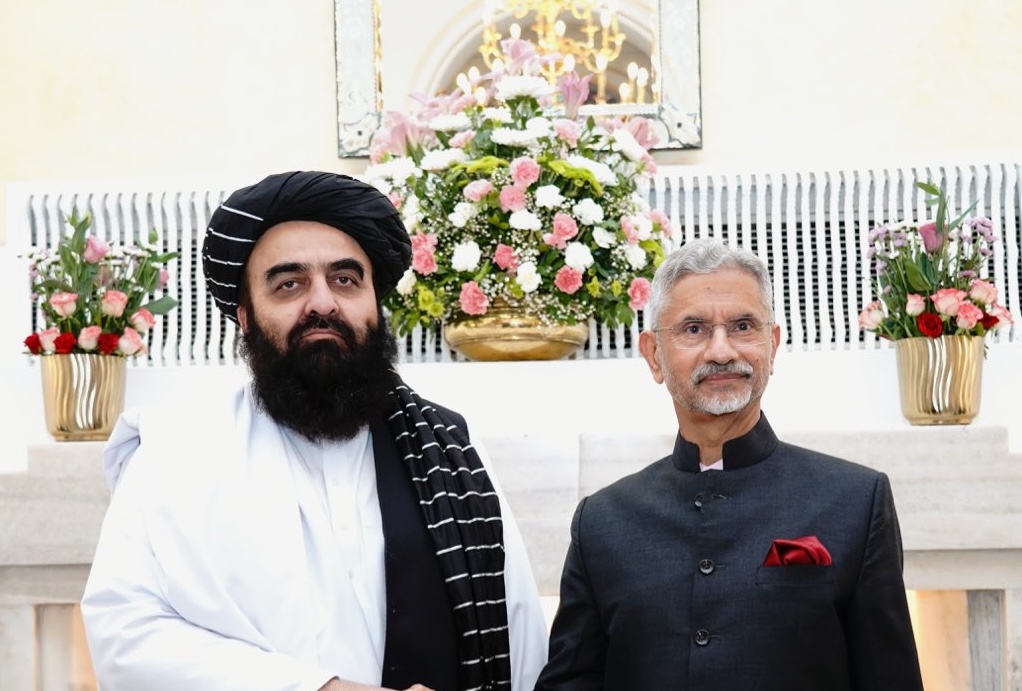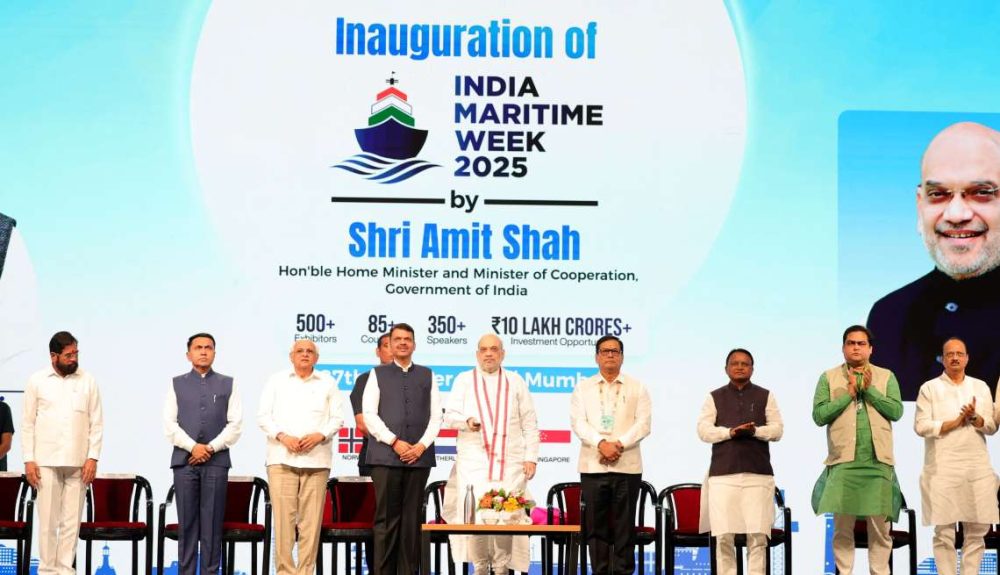While a smaller number of respondents highlighted subsidies as a focus area of spending, 53 per cent of the respondents felt that the subsidy burden will increase in FY24…reports Asian Lite News
Majority of the respondents of CARE Ratings pre-budget survey were of the view that the focus of the current NDA government’s final full budget before the Lok Sabha polls will be on employment generation and inclusive growth.
Despite the global headwinds, the Indian economy is expected to grow by seven per cent in FY23, states a pre-budget survey conducted by credit rating agency CARE Ratings.
Ahead of the current NDA government’s final full budget before the Lok Sabha elections, CARE Ratings surveyed 364 respondents from key industries to gauge their expectations.
“72 per cent of the respondents felt that employment generation and inclusive growth would be the focus area of this budget. Commitment to capex also emerged as a critical area,” CARE Ratings survey report notes.
A large 88 per cent of the respondents felt that the government’s focus on infrastructure spending will continue in FY24. Employment generation emerged as the other critical area of government spending, the report said.
While a smaller number of respondents highlighted subsidies as a focus area of spending, 53 per cent of the respondents felt that the subsidy burden will increase in FY24.
As regards the government’s capital expenditure, 42 per cent of the respondents expect the capex target to rise by up to 13 per cent (range of Rs 7.5-8.5 lakh crore) in FY24 compared to FY23 target, while more than 50 per cent of the respondents expect the growth in capex to be even higher.
According to CARE Ratings, support to economic growth and fiscal consolidation to be the twin focus areas of the FY24 budget to be presented by Finance Minister Nirmala Sitharaman.
Continued focus on physical infrastructure to steer economic growth. Increased spending on health, education and skilling for social infrastructure development. Focus on development of agriculture and rural economy. Measures to support the export sector, CARE Ratings added.
The rating agency said the gross tax revenue likely to exceed the budgeted target by Rs 3.5 lakh crore, while non-tax revenue could witness a shortfall owing to lower dividend transfers from the Reserve Bank of India (RBI).
With higher subsidies announced, expenditure is likely to exceed by Rs 3.3 lakh crore. The Central government’s fiscal deficit could exceed the budget target by Rs 0.8-1 lakh crore in FY23.
However, higher than budgeted growth in nominal GDP will keep the fiscal deficit to gross domestic product (GDP) ratio under check in FY23, the report said.
“We expect the government to move towards fiscal consolidation, budgeting a lower fiscal deficit to GDP ratio of around 5.8 per cent for FY24. With nominal GDP growth estimated to moderate to around 10 per cent, we project gross tax collections to grow by 10 per cent in FY24,” CARE Ratings said.
The credit rating agency expects an improvement in non-tax revenue in FY24, on the back of estimated lower receipts in the current fiscal.
“We have factored in a modest rise of 5 per cent in revenue expenditure in FY24, with lower subsidy burden.A We expect capex to rise by around 10 per cent over the budgeted Rs 7.5 lakh crore for the current fiscal,” CARE Ratings said.
The sectoral expectations as per the survey report are:
Fertilisers
* Higher allocation of subsidies towards urea as well as non-urea fertilisers at a level of more than Rs 2,00,000 crore.
* Special incentives to set up fertiliser plants in India to cut dependence on imports.
* Reduction in duty on imports of ammonia and phosphoric acid to improve the competitiveness of domestic fertiliser manufacturers.
* Incentives for the promotion of organic fertilisers.
Sugar

* With the government aiming to increase the diversion of sugarcane towards ethanol and fix ethanol supply targets, policy measures and incentives to promote biofuel and flex-fuel vehicles that aim to support ethanol blending are likely to continue.
* No major announcements are expected other than the fact that the government may continue to make allocations towards schemes for the development of the industry as the problem of sugarcane arrears remains.
* Revision in MSP of Sugar is imperative as the cane prices in the past few years have been increasing.
*Better tax incentives for ensuring ease of doing business which will also act as a driving force to move towards E20 and beyond.
Auto and Auto Components
* Validity of FAME II to be extended beyond March 2024 to capitalise on the growing demand.
* FAME II should also be revised to include commercial vehicles.
* Rationalised GST across auto and auto components with a balanced structure that aligns taxation rates with emission norms for vehicles rather than basing it on the type of powertrain. The taxation rates should be the lowest for EVs.
* Revision in PLI to include small/medium-size/start-up players contributing to the EV ecosystem.
* Subsidised financing rates on loans availed by manufacturers of pure EVs for setting up manufacturing facilities and for auto loans availed by buyers – whether by CV fleet owners or buyers of individual cars or two wheelers.
* Increase in the all-industry rate of duty drawback and rate of Remission of Duties and Taxes on exported products to enhance the exports.
Banking and Financial Services
Banking
* Clarity on regulations around Central Bank Digital Currency (CBDC) post initial pilot projects.
* Nudge public sector banks towards market borrowings for funding the credit push given the divergence between deposit growth and credit growth rates.
* Provide additional incentives for long-term funds raised by banks from depositors or the capital markets.
* Support lending to weaker sections/micro businesses with credit support, interventions, etc.
Non Banking Finance Companies (NBFC)
* NBFC is to be brought at par with banks, small finance banks and housing finance companies in terms of SARFAESI regulations, wherein they are also allowed to apply for loans above Rs 1 lakh as against the cut-off of Rs 20 lakh as of now.
* Support lending to weaker sections/micro businesses with credit support, interventions, etc.
Insurance
* Streamline GST input credit norms on expenses.
Capital Goods
* Increase in overall capital expenditure budget and higher allocation towards improving logistics infrastructure, defence, renewable energy, urban development, etc.
* Incentives for renewable energy equipment manufacturing.
* Schemes to promote the indigenization of capital goods and increase exports.
Gas
* Natural gas explorers are under pressure as domestic gas prices are lower compared with LNG prices. A move towards simplification of the tax structure, and exemption of E&P activities from GST to promote investments in exploration and production activities would be critical and thus expected.
* Reduction of GST on regasification of LNG and natural gas transmission from the existing rate of 18 per cent and 12 per cent, respectively, so as to reduce the overall landed cost of natural gas, thereby making it more competitive against alternative fuels.
* Lowering the excise duty rate on CNG, thus reducing the burden of high natural gas costs on the consumers.
* Around 50 per cent of natural gas consumption is met through LNG imports. A reduction in the customs duty on LNG from the present level of 2.50 per cent is expected to boost consumption.
Telecom
* Duty exemptions on key telecom equipment for 5G rollout.
* Reduction in license fees from 3 per cent to 1 per cent.
* Refund of an input tax credit against GST paid on telecom towers.
* Incentive schemes to push Make in India drive for domestic manufacturing.
* Promotion of private/captive 5G network to boost digital penetration in the enterprise segment, while protecting the interest of existing telecom service providers (TSP).
* Abolishment of levying 5 per cent of license fee towards universal service obligation fund for TSPs.
* Removal of GST on the license fee, spectrum usage charges and payment of spectrum acquired through an auction. Alternatively, payment of Reverse Charge Mechanism on Government Services from the input tax credit.
* An incentive to satellite companies by way of reduction in GST and allowing deduction of license fee and spectrum usage charges in the computation of income tax for promoting growth in satellite broadband services.
Textile
* Changes in the textile duty structure to avoid inverted duty structure.
* Reduction/removal of import duty on cotton, which was imposed by the government in February 2021.
*Revision in PLI to increase the scope of product coverage under the PLI scheme. Furthermore, a revision in the PLI threshold and an extension of the scheme to cover additional applications from the industry is expected.
* Effective implementation of various inventive schemes announced by the government until now.
* Incentives for purchasing indigenous machinery for supporting the Make-in-India mission.
* More foreign trade agreements and reduction in tariffs for encouraging export penetration globally














